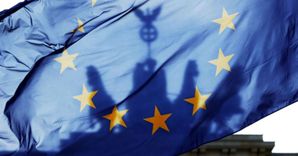No new monetary stimulus, at least for now. The European Central Bank (ECB) left unchanged at zero, the main refinancing rate, in line with analysts’ expectations, as a result of today’s executive committee meeting. This was announced by the ECB, which also confirmed at -0.40% rates on overnight deposits at the ECB site. The marginal lending rate also remains at 0.25%. No change also regarding the purchase program – increased from 60 to 80 billion a month last March – which will continue until the end of March 2017 “or beyond if necessary” until inflation will not return to a sustainable level.
From Dragons message to Berlin: acts of spending, surplus and wages
Read more
the ECB Governing Council also instructed the relevant committees to evaluate “options” on the possible purchase plan of public and private securities boosted last March. “The main thing – said Dragons – is to ensure that decisions taken in March could be applied in the new environment characterized by very low interest rates, which has clearly reduced the securities basin ‘that can access the program. The changes in the economic scenario of the Eurozone, however, are not “so substantial as to justify new actions” by the ECB for the moment. “Our monetary policy is effective – he pointed Dragons – We have not discussed” the extension of the purchase program (Qe).

those ‘tourists’ bond subzero
the ECB staff also released the new economic estimates after those of June: the GDP will grow by 1.7% (from + 1.6% in June) in 2016 and 1.6% in 2017 and 2018 (from + 1.7%); inflation will remain low in the coming months and is expected to + 0.2% in 2016 (estimate unchanged) and + 1.2% in 2017 (from + 1.3%), and will increase to 1.6%, ie ECB close to the lens, only in 2018. Draghi admitted that in the baseline scenario, inflation will take “a bit ‘longer than expected to reach the level below but close to 2%, but not much longer.” The main risks are in any case of a worsening economic outlook in the coming quarters, due to weak international demand and the results of the referendum on “Brexit”.
At a reporter’s question on the spaces of the individual countries in the area of fiscal policy, Draghi said that governments that have budgetary margins should use them to help the recovery, to the benefit of the whole euro area, “and Germany – said – he has these budgetary margins.” The countries however do not have these margins “should focus on the composition of the budget”, so that it comes in favor of resuming. “Minor surplus current account by Germany, or the euro area as an aggregate, would be desirable so as to meet the recommendation of the European Commission. He is however – added Dragons – always a bit ‘confused when it comes to reducing the current account surplus. We are not in planned economies, you can not push a button and reduce the surplus. If an industry is competitive it is that it can make an effort not to be. Rather, efforts should be made to make this competitiveness in domestic demand. ”
Draghi has also responded to the criticism, arrived mainly by German banks, on the negative impact of low interest rates on bank profitability. “The low interest rates – said – should not be used as a justification for everything that does not work in banks, would be a mistake. In the end – he concluded – we must be patient. Interest rates must remain low because the recovery will take root, then a recovery that will have positive effects on the financial statements of banking groups. Interest rates must be low today to go tomorrow. “
European stocks have slowed down after the announcement. Milan has brought well below parity, bad even Paris and Frankfurt. The euro has regained share 1.13 on the dollar, an increase of almost one percentage point on the dollar.
(Il Sole 24 Ore Thomson Plus)
© All rights reserved
No comments:
Post a Comment